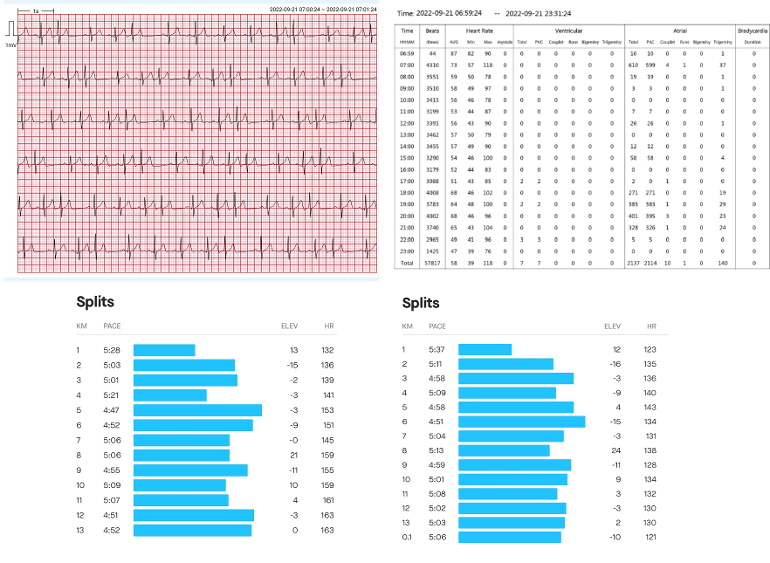Afternoon all,
Thought I'd share my experiences of navigating my way through PAF so far. My history is in a previous post - 4 experiences of high HR / AF during big efforts over the last 12 months, but seemed to be getting more frequent. No issues reverting to NSR.
Cardiologist driven testing - I've got a very strong family history of heart disease, so had a CTCA (I'm top 10% for calcium score for age group). Had an angiogram yesterday and all clear - cholestrol <3, but increased statin dosage to 20mg / day. Gave me some beta blockers to try (metopronol tartrate) .
Diet / sleep / alcohol. Trying to get closer to 7 hours per night rather than 6. No major changes to diet (I'm 6ft6 and 82kg). Reduced alcohol to max 2 drinks / night and only 3 days / week
Devices. Got myself a Wellue AI ECG device. It's not much good during exercise or lots of movement (fine walking, not so good if moving upper body lots like painting / gardening etc). However, has shown me I have loads of PAC's. Here's fairly typical one minute ECG after exercise and then the summary of a day. Came back from exercise and put it on just before 7am, then work, then walking around towards the end of the day.
Exercise. Still doing 6 days a week, but certainly not going quite as hard. Aiming to peak at 150bpm, and max avg 130bpm when out. Way more conscious now of rhythm, and it's clear to be that above 150bpm I start to get irregularities, and if I keep on pushing it then it could lead to AF. I suspect that previously I pushed into this AF zone more frequently than I thought, but not for long enough to tip it over the edge. It's also clear that this threshold appears to have been decreasing.
Betablockers. In the last week I've trialled 1/2 tab of 50mg metopronel tartrate before exercise, with very good results. See two runs - one at 5:03/km and 5:05/km on the same route. You can tell the BB - avg -20bpm. Also tried with cycling. The advantages are it does a very good job of lowering and putting a cap on my HR. Not much affect on PAC's. The disadvantages are that it has impacted performance - for example I could run a bit quicker than below, but on a BB my HR won't increase and my legs starve of oxygen. Same thing with cycling - in a group pack when you need to contest the sprint then you can't push as hard. When I stop exercising if sitting down then I can get into the high 30's, so it's probably -5-8 bpm down when resting. No other adverse effects. I can take the reduction in performance if I can still get out there.
So overall compared to what I was thinking a few months ago I'm in a pretty ok place. It seems like I am more aware of the triggers (going too hard, alcohol). I've got a device I can use to assess / baseline some indicators to know if I am getting worse. And good results with a BB to take the edge off without appearing to sacrifice performance.
I've found this forum to be very helpful and one of the better sources of people lived experiences - understanding that my situation is different from a lot in that I'm early stages with a fair degree of control over what's bringing it on.
Cheers,
Tom
